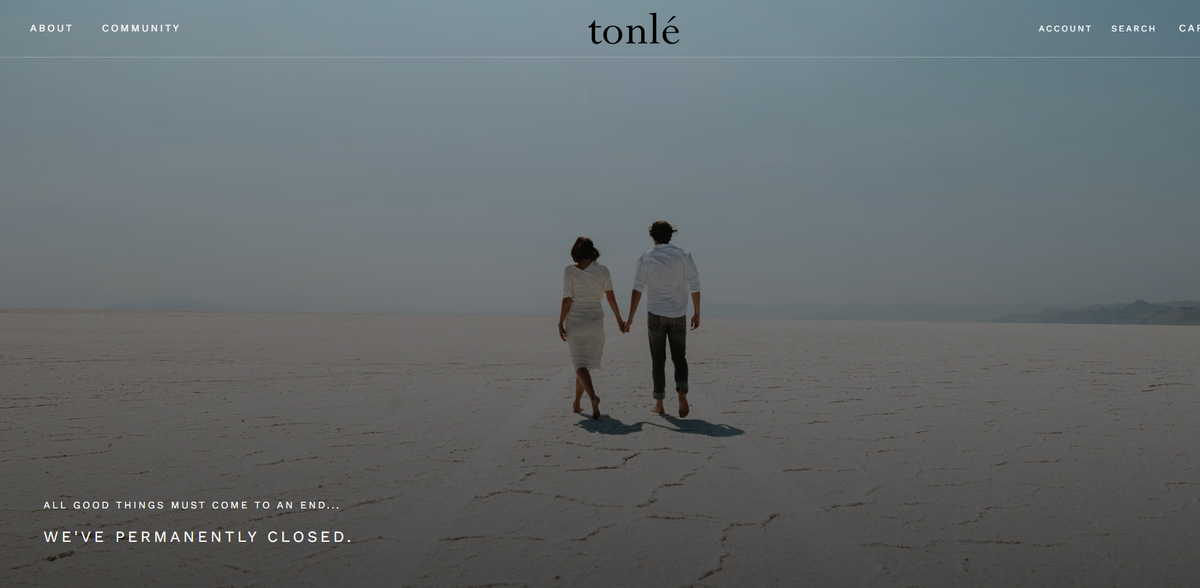What is the tonlé Project?
This is heartbreaking news to share but after 15 years of working on tonlé alongside many incredible team members and contributors, it’s time to say goodbye, for now. The project started as a single brand and manufacturer aiming to demonstrate that making clothes out of waste and utilizing every single scrap could be a reality. tonlé is a platform for brands, designers, makers, manufacturers, funders, and innovators who are collaboratively building a new circular fashion economy. It has been a maker-led community creating a purposeful future for fashion that is restorative, regenerative, and just… all while diverting over ½ million pounds of textiles from going to waste.
Main Benefit
The main benefit of tonlé can be summarized in several key figures and facts:
- 15 years of dedicated effort and innovation.
- Over ½ million pounds of textiles diverted from waste.
- A community focused on circularity and climate justice.
- A network that includes brands, makers, designers, and creatives from diverse backgrounds.
- A commitment to skill sharing, collaboration, and purposeful production instead of over-ordering.
Adapting to Contemporary Challenges
The tone of tonlé’s journey reflects a strong desire to challenge a system that is not designed for mutual thriving. They have been fighting against the grain of a capitalist system that benefits a select few while marginalizing many. Financial strains brought on by the pandemic, coupled with a market where large brands are becoming increasingly monopolistic, made it impossible to remain financially sustainable—despite an incredibly supportive customer base. The narrative is not seen as a failure; instead, it highlights systems that have not supported their creative and ethical ambitions.
Vision for Circular Fashion Economy
tonlé envisions a fashion industry where everyone benefits and thrives. The philosophy is simple: using fabric others consider waste, tonlé creates beautiful products designed to last. The process ensures that every scrap of fabric, every action taken, and every garment produced has a purpose. The method is a marriage of creative pattern making and the reclamation of materials, leading to zero material waste because waste is only truly “waste” when it gets wasted… An ecosystem approach replaces extractive and linear supply chains.
Collaboration and Community Impact
Collaboration is the cornerstone. Under a commitment to reciprocity and mutual benefit, tonlé has been championing design by creators who are inspired by their own cultures—eschewing perspectives rooted solely in colonialism. The project values skill sharing instead of extraction, collaboration instead of competition, and equitable distribution of wealth. The impact is deeply felt across various segments of the fashion industry, particularly among emerging creatives outside the traditional purview of global north fashion weeks, who are provided with resources and support to build a new circular economy.
Project Impact
- SDG 12: Responsible Consumption and Production – Emphasizing purposeful production and circularity.
- SDG 13: Climate Action – Striving for a fashion industry that mitigates devastating impacts on the planet.
- SDG 8: Decent Work and Economic Growth – Committed to fair compensation and equitable work environments.
- SDG 10: Reduced Inequalities – Supporting emerging creatives and diverse voices in design.
- SDG 17: Partnerships for the Goals – Fostering a collaborative network of brands, makers, and innovators.
Looking Forward
While not much is changing with core production in the immediate future, tonlé is adapting by expanding its online platform to engender more collaborative work. The journey is marked by a radical rethinking of what fashion can and should look like—moving beyond fast fashion’s overproduction and exploitative practices toward systems that ensure mutual thriving. The tonlé narrative is a call to put pressure on larger systems to change, to create structures that support intentional production, reciprocity, and shared success. Each scrap of fabric and every connection made speaks to an ongoing commitment to contract the harm and injustice that have long been the hallmarks of the modern fashion industry. The project may be closing its business operations as it currently exists, but the resources, knowledge, and platforms built remain ready to support a broader industry and inspire future initiatives.






















